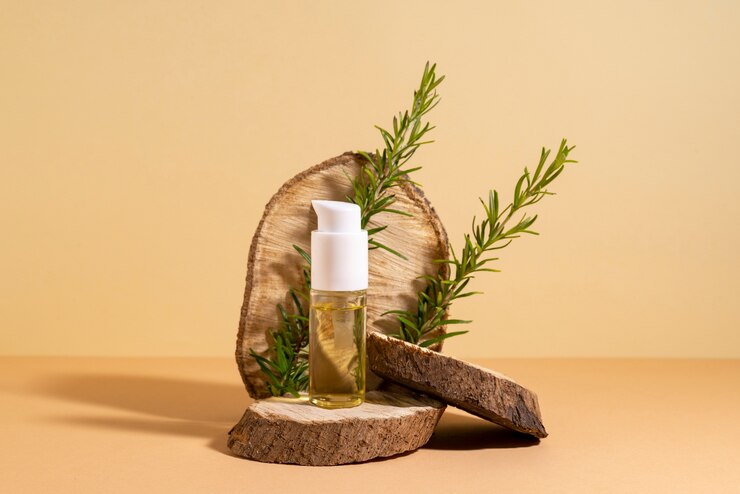TEA TREE OIL – Uses, Side Effects, and More

Tea tree oil, derived from the leaves of the tea tree (Melaleuca alternifolia), native to Australia, has gained immense popularity worldwide due to its powerful antiseptic properties and ability to treat wounds. Despite its name, it has no relation to the plants used to make black or green tea. Tea tree oil is renowned for its versatile uses, including medical, cosmetic, and cleaning applications.
2. Top Uses of Tea Tree Oil
Medical Treatments:
Tea tree oil is famed for its antibacterial, antifungal, and antiviral properties. It is commonly used to fight off infections and soothes skin disorders like eczema, acne, and psoriasis.
-
Acne Treatment:
Applying a 5% tea tree oil solution appears to be as effective as 5% benzoyl peroxide (Oxy-5, Benzac AC, and others) for treating acne. Tea tree oil might take longer to work initially, but it is generally less irritating to facial skin. -
Fungal Infections:
It is also applied as an antifungal agent, particularly useful in combating athlete’s foot. -
Wound Healing:
Its natural antiseptic properties make it an excellent choice for treating cuts, wounds, and other types of skin abrasions.
Cleaning Applications:
Tea tree oil is also a popular choice in household cleaning products due to its potent antimicrobial properties, helping to keep homes free from bacteria and mold. These natural cleaning products provide a non-toxic alternative for families seeking chemical-free choices.
3. How to Use Tea Tree Oil Safely
When using tea tree oil, always remember that it is potent and should not be applied directly to the skin undiluted. It is best to:
-
Dilute It:
Combine it with a carrier oil like coconut or almond oil in a 1:1 ratio before applying to the skin. -
Patch Test:
Make sure to perform a patch test on a small area of your skin to ensure there’s no allergic reaction before using it widely.
4. Potential Side Effects of Tea Tree Oil
Despite its natural origins, not everyone can safely use tea tree oil without experiencing side effects. Chief among them are:
-
Allergic Reactions:
Some people might experience contact dermatitis. -
Prepubertal Gynecomastia:
Gynecomastia, which has been reported in prepubescent boys on topical use, potentially linked to hormonal effects of tea tree oil.
5. Benefits of Tea Tree Oil for Skin and Hair
Skincare:
Tea tree oil’s anti-inflammatory and antimicrobial properties make it an excellent ingredient in your skincare arsenal for clearing up acne and soothing skin inflammations.
Hair Care:
It can also be used in shampoos and conditioners to treat dandruff and promote healthy hair.
6. Tea Tree Oil in Aromatherapy
Essential Oils Blend:
Used in aromatherapy, tea tree oil can help alleviate cold symptoms and boost the immune system. Mixing it with eucalyptus oil is particularly effective for respiratory ailments.
7. Choosing the Right Tea Tree Oil
-
Purity:
Look for oil that is 100% pure tea tree oil without any additives. -
Packaging:
Opt for small dark glass bottles which prevent light from degrading the oil’s properties. -
Certifications:
Check for products that adhere to ISO standards or are Certified Organic to ensure quality.
8. Frequently Asked Questions (FAQs)
Q: Can tea tree oil be ingested?
A: No, tea tree oil should not be ingested as it can be toxic if swallowed.
Q: What concentration of tea tree oil is safe for skin application?
A: It is generally recommended to use a 5% concentration for skin applications to minimize any adverse reactions.
9. Conclusion
In conclusion, tea tree oil is a versatile and potent essential oil that offers a range of benefits from medical to cosmetic applications. However, it is crucial to use it carefully and understand its potential side effects. Always choose quality oil and use it responsibly to enjoy its many benefits.
10. References
To learn more about the efficacy and safety of essential oils, including tea tree oil, consult these resources.